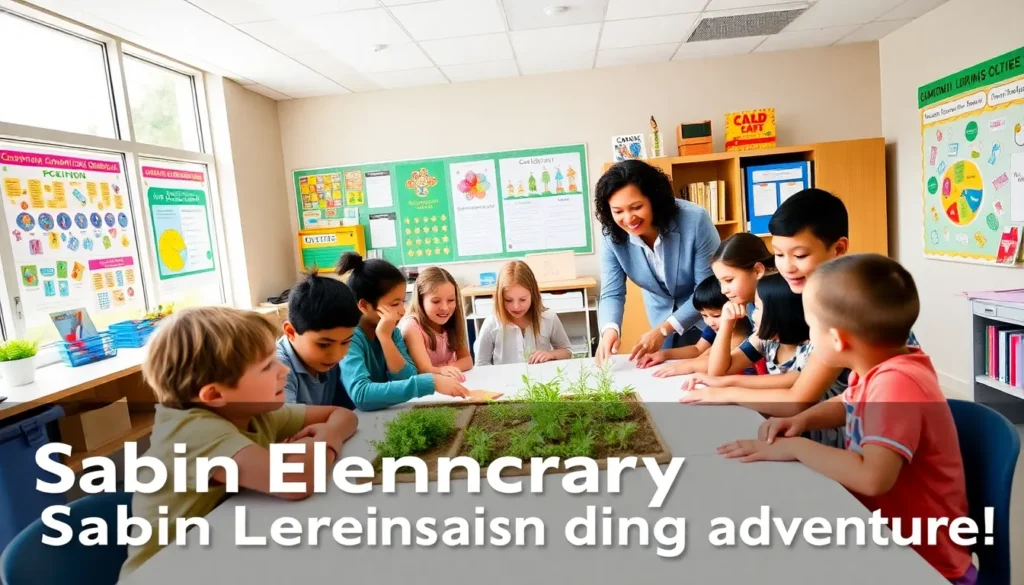Navigating the complexities of legal custody can be overwhelming for parents. Whether facing a divorce or separation, understanding custody arrangements is crucial for ensuring a child’s well-being. Legal custody involves the right to make significant decisions about a child’s upbringing, including education, healthcare, and religious instruction.
With varying laws and regulations in different states, parents often find themselves in need of clear, actionable advice. This article aims to provide essential insights into legal custody, helping parents make informed choices that prioritize their child’s best interests. From understanding types of custody to exploring mediation options, this guide equips readers with the knowledge they need to navigate the legal landscape confidently.
Table of Contents
ToggleUnderstanding Legal Custody
Legal custody refers to the authority to make crucial decisions about a child’s upbringing. Understanding the different aspects of legal custody helps parents navigate custody arrangements more effectively.
Types of Legal Custody
- Sole Legal Custody: One parent possesses full decision-making authority, often providing stability for children.
- Joint Legal Custody: Both parents share decision-making responsibilities, usually encouraging collaboration and communication.
- Limited Legal Custody: Restrictions are placed on decision-making authority, typically addressing specific areas like education or healthcare.
Importance of Legal Custody
- Child’s Well-Being: Legal custody arrangements affect a child’s emotional and psychological health by ensuring their needs are prioritized.
- Parental Involvement: Clear legal custody definitions enhance parental participation in a child’s life, promoting balanced relationships.
- Legal Clarity: Understanding legal custody helps avoid disputes between parents, ensuring smoother transitions and co-parenting relationships.
Key Considerations for Legal Custody

Understanding key considerations for legal custody is essential for parents facing custody decisions. Various factors guide judgment in custody arrangements.
Factors Influencing Legal Custody Decisions
- Parental relationships: Courts assess the relationship each parent has with the child, focusing on emotional bonds and support.
- Child’s age and development: The child’s age impacts decision-making, as courts recognize that younger children may need more stability and nurturing.
- Parental fitness: Courts evaluate each parent’s ability to provide a safe and supportive environment, considering physical and mental health.
- Lifestyle stability: Courts review living conditions, work schedules, and financial stability to ensure a child’s needs are met consistently.
- History of abuse or neglect: Any history of domestic violence or neglect significantly influences custody decisions, often resulting in limited custody or supervised visitation.
- Child’s preference: In some cases, older children may express preferences, which courts may consider, depending on the child’s maturity.
The Role of Child’s Best Interest
The child’s best interest remains the cornerstone of custody decisions. Factors standing out include:
- Emotional well-being: Courts emphasize maintaining the child’s emotional stability through regular contact with both parents.
- Educational needs: Decision-makers consider the child’s educational needs, focusing on continuity in schooling.
- Sibling relationships: Preserving sibling bonds often factors into custody arrangements, as maintaining these connections supports emotional health.
- Cultural or religious considerations: Courts acknowledge the importance of cultural and religious upbringing, ensuring children grow in environments that reflect their backgrounds.
- Parental cooperation: The ability of parents to communicate and cooperate often influences custody outcomes, as collaboration supports co-parenting.
These considerations create a framework for custody negotiations, helping parents make informed decisions that prioritize their child’s welfare.
Seeking Legal Custody Advice
Navigating legal custody requires expert guidance. Parents seeking assistance can benefit from understanding where to find professional help and the crucial questions to ask during consultations.
Where to Find Professional Assistance
- Family Law Attorneys: Licensed professionals specializing in family law provide essential legal support regarding custody arrangements.
- Mediators: Trained mediators assist parents in reaching mutual custody agreements, focusing on collaboration rather than conflict.
- Child Psychologists: These experts offer insight into child development and can provide evaluations that influence custody decisions.
- Legal Aid Organizations: Non-profit legal aid services often offer free or low-cost consultations for families with limited financial resources.
- Local Family Courts: Many family courts have resources and referral services to connect parents with appropriate custody advisors.
Questions to Ask a Legal Custody Advisor
- What experience do you have with custody cases?: Inquire about the advisor’s background to assess their familiarity with similar situations.
- What is your approach to resolving custody disputes?: Understanding their conflict resolution strategy gives insight into their methods.
- How do you prioritize a child’s best interest?: This question clarifies the advisor’s commitment to focusing on child welfare in their recommendations.
- What documentation will you require from me?: Knowing necessary paperwork helps parents prepare for meetings efficiently.
- What are the potential outcomes of my case?: Realistic expectations regarding custody outcomes allow parents to approach the situation with informed perspectives.
Legal Custody Disputes
Legal custody disputes often arise during divorce or separation, creating significant stress for parents and children alike. Understanding common challenges and effective strategies for resolution can facilitate smoother custody arrangements.
Common Challenges in Custody Cases
- Parental Conflict: High levels of conflict between parents can undermine productive communication and lead to protracted legal battles.
- Emotional Impact on Children: Children often experience anxiety and confusion during disputes, which can affect their emotional well-being and stability.
- Legal Complexity: Custody laws vary by state, creating confusion regarding rights and responsibilities, complicating negotiation efforts.
- Manipulation and Alienation: Situations may arise where one parent attempts to alienate the child from the other, leading to additional legal complications and emotional harm.
- Judicial Discretion: Judges wield significant discretion in custody decisions, making outcomes unpredictable and creating further uncertainty for parents.
Strategies for Resolving Custody Disputes
- Mediation: A mediator can facilitate discussions between parents, helping them reach mutually agreeable solutions outside of court.
- Co-Parenting Counseling: Engaging in co-parenting counseling provides tools and strategies to improve communication and collaboration.
- Legal Representation: Hiring an experienced family law attorney helps ensure all legal rights are protected and guides parents through the complexities of custody law.
- Collaborative Law: This approach encourages parents to negotiate in good faith and maintain control over their custody arrangements, without court intervention.
- Focus on the Child’s Best Interest: Prioritizing the child’s needs can help parents navigate disputes with a common goal, increasing the likelihood of a positive outcome.
Navigating legal custody can be a daunting experience for parents. Understanding the nuances of custody arrangements is crucial for maintaining a child’s emotional and psychological well-being. By prioritizing the child’s best interests and seeking professional advice, parents can make informed decisions that foster healthy relationships and minimize conflict.
Utilizing resources such as family law attorneys and mediators can provide valuable support throughout the custody process. It’s essential for parents to remain focused on their child’s needs and work collaboratively to create a stable environment. With the right approach, parents can effectively manage legal custody challenges and ensure a brighter future for their children.









